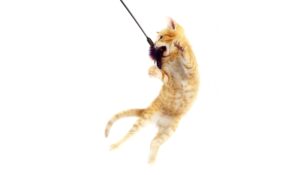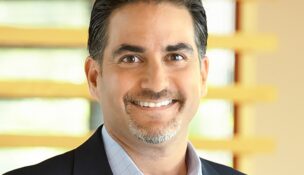Pet Brands Partner with Influencers to Cut Through Advertising Landscape
Alexandra Wepner//January 16, 2019//
Pet Brands Partner with Influencers to Cut Through Advertising Landscape
Alexandra Wepner //January 16, 2019//
In 2018, marketing is a way of life—and a fast-changing one, at that. Human beings market products, lifestyles and themselves on any platform available, and social media influencers have emerged as the newest generation of spokespeople, opening the door to a whole new group of people (and animals) who can lend their endorsement to brands for profit. And now, it’s not even necessarily a requirement to have millions of online followers. Barrett Wissman, writing for Forbes.com, recently explored this development in his March 2018 piece, “Micro-Influencers: The Marketing Force of the Future?”
But how many advertisements do we actually see each day? Ron Marshall, president of Red Crow Marketing, Inc., estimated in 2015 that the number fell between 4,000 and 10,000.
“Of course, most people won’t actually recall seeing 10,000 messages,” Marshall explained in a blog published to the company’s website. “This is because, in order to keep our sanity, we’ve developed a screening process to ignore most advertising messages. Less than 100 of them make it past our ‘attention wall’ each day. It’s simply a matter of preservation. This is why [brands] must be creative, memorable and engaging.”
So how do brands make it through this so-called “attention wall”? And more importantly, how can retailers benefit from and capitalize on these powerful marketing strategies?
Popularity Pushes Product
The use of endorsements in sales precedes the birth of the United States, though the practice has evolved in the hundreds of years since then. And while the nature of celebrity endorsements and brand-influencer partnerships may change, it seems unlikely that their relevance will ever wain.
In fact, a September 2010 Ad Age article by Dean Crutchfield titled “Celebrity Endorsements Still Push Product” claimed at the time of publication that “recent studies of hundreds of endorsements have indicated that sales for some brands increased up to 20 percent upon commencing an endorsement deal.” While that figure is likely to vary across brands and across industries, it seems unlikely that companies would participate in endorsement campaigns if they didn’t yield significant results. More specifically, the pet industry is no stranger to celebrity-brand partnerships: Michael Phelps has represented NULO, while DOG for DOG named Snoop Dogg, Michael Bublé and Chelsea Handler as brand ambassadors.
Earlier this year, Randy Jackson and Brandon McMillan partnered with Lucy Pet Products for the company’s Formulas for Life pet foods.
“I love dogs,” said Jackson, a business entrepreneur who spans beyond music and entertainment, when the partnership was announced in October. “They are an important part of my family and give unconditional love. Keeping pets healthy with the best food possible is everything, and I’ve recently learned that prebiotics are very important in helping dogs and cats live a healthier life. These formulas were developed by the leading expert in gut health, Dr. George C. Fahey, and I truly believe that Lucy Pet Formulas for Life are the best you can do for your pet.”
“I have a training ranch where over 100 dogs pass through every year,” added McMillan, a celebrity dog trainer who stars in the Emmy Award-winning TV series, “Lucky Dog.” “I’ve been feeding Lucy Pet Formulas for Life food to every one of them for over a year, and the dogs have thrived.”
Tabitha Cromer, marketing manager for Tomlyn, confirms that the brand has seen positive results related to influencer partnerships. The brand’s Pill-Masker for cats and dogs has been supported by Jackson Galaxy, a famed cat behaviorist and host of Animal Planet’s “My Cat from Hell.”
“By teaming up with an effective partner, it will help build awareness for the product and drive people into the stores looking for the product,” Cromer said. “We drive interest on our end as well as Jackson when he talks about the Pill-Masker products. Demand for the products have increased substantially and have turned over quickly on the shelf.”
According to David Yaskulka, vice president of Social Investment and Engagement at HALO, Purely for Pets, Inc., there are two things that make influencer and brand partnerships such a powerful tool for pet brands in particular. HALO has worked with a range of pet and human celebrities (many of them particularly successful on social media), including Manny the Frenchie, Lil BUB, Jackson Galaxy and Nala Cat.
“Two things drive that impact. One is obvious: audience,” Yaskulka said. “Clearly, when Nala Cat or Manny the Frenchie or Lil BUB or Jackson Galaxy post [on social media] about HALO, the audience size is orders of magnitude larger than HALO’s own audience.
“But, number two, the authenticity of the voice is a critical component in impact,” he continued. “So, [take] the fact, for example, that after years of rising to fame and years of being in the millions in social audience, Lil BUB had never taken a penny from a pet food company because there wasn’t one that she and her dude Mike believed in. And then they select HALO. Well, their audience just stood up and paid attention. And for that reason, it truly drives conversion and trials for HALO.”
Finding the Perfect Match
While influencer-brand partnerships might be regarded as a tried-and-true marketing strategy, one must not downplay the amount of thought that goes into each of these campaigns. The fact is, influencer-brand partnerships are only effective if the match is a good one—a smart one. In “How Brands Should Use Celebrities for Endorsements,” published by Forbes.com in July 2016, Steve Olenski posits it’s all about “a cultural and values fit.”
“It seems obvious, but in order for their impact to be shown, endorsements have to have a similar target audience that the ‘influencer’ has to begin with,” Olenski writes. “For example, you wouldn’t see LeBron James promoting, say, makeup. He’s one of the biggest stars on the planet, and yet without his celebrity being targeted accurately towards the potential users of products promoted by him, his effect will be relatively small.”
According to Chris Wilson, executive vice president of Marketing and Product Development for Petmate, there’s quite a bit of research that takes place before a celebrity is approached for a brand partnership. Petmate has worked with celebrities such as Jackson Galaxy, country music star and founder of MuttNation Foundation Miranda Lambert, and author and animal trainer Brandon McMillan, perhaps best known for hosting “Lucky Dog” on CBS.
“When we are looking into partnering with an industry professional or celebrity, there are a number of factors we consider to ensure they are a great fit for Petmate and we are a great partner for them,” Wilson said. “We research their current presence within the pet space to understand how their name or likeness would resonate with pet parents…
“We only consider partnering with a celebrity if they are rooted in the pet space. In other words, we would not partner with someone who was simply famous but lacked a reason for being in pet products. Preferably, their status as a celebrity is because of work they have done with pets. This way, they bring expertise, knowledge and status as a trusted person to help guide the products that carry their name,” Wilson continued.
Surely, these partnerships must be mutually beneficial beyond the fact that influencers are being paid. From an influencer’s perspective, brands may become more attractive for partnerships if the influencer feels the brand embodies or furthers a mission they’d like to support.
“Probably the most important factor for HALO is commonality of mission,” Yaskulka said. “HALO is not a big enough company to simply pay for or sponsor the sort of partners who now work with HALO. So for Lil BUB or Manny the Frenchie or Nala Cat or, now, Jackson Galaxy, they chose HALO in large part because of HALO’s social mission. They care about the quality of the food but also that HALO is devoted to making a difference even beyond our impact on companion animals.”
In addition, many influencers claim to use the products they represent, bolstering the perceived authenticity of their endorsements.
“We are very selective on who we partner with because we want our relationship to be long term and it must work for both parties,” Cromer said. “We want someone who believes in our brand and our products. Also, it is important to us that they are as passionate about animals as we are… To be most effective, the celebrity needs to use and believe in the products they are promoting.”
How Retailers Capitalize
Of course, retailers benefit from effective marketing campaigns in that they are designed to familiarize audiences with a product and drive consumers to make purchases. However, the opportunities for retailers don’t stop there.
“Facial, name and/or brand recognition on store shelves will grab the attention of consumers while shopping at retail or online,” Wilson said. “There are often opportunities for promotions as well, be it giveaways, sweepstakes, etc. The licensors want their product lines to be successful, as do we. The right celebrity can bring instant recognition and differentiation. They can also bring traffic to retailers as their fan base becomes an avid consumer of the products the celebrity helps develop and/or endorses.”
In actuality, the retailer’s role in this process need not be an exclusively passive one. Yaskulka encourages retailers to think outside of the box to find ways that they can capitalize on brands’ marketing campaigns, particularly on social media. And as many independent retailers turn to social media to more effectively communicate with potential customers, this may be a valuable lesson to learn.
“For the most savvy retailers, who understand that great content is one of the keys to their own social media success, a brand like HALO, which has images of Lil BUB with a product that’s available in their store [would be helpful],” he said. “The most savvy retailers will use that content and share it themselves and say, ‘Look, Lil BUB talking about HALO, on sale this week 10 percent off at ‘Mom’s Pet Store.’
“You know, most independents won’t be able to afford to bring on a Lil BUB or Nala Cat or Jackson [Galaxy], but because they carry HALO, they can use that social [media] content and that’s how a retailer can maximize impact,” Yaskulka added. “What they need to do is figure out among their vendors who is really great at social [media] content and then use it. It’s available and theirs to use.”



















